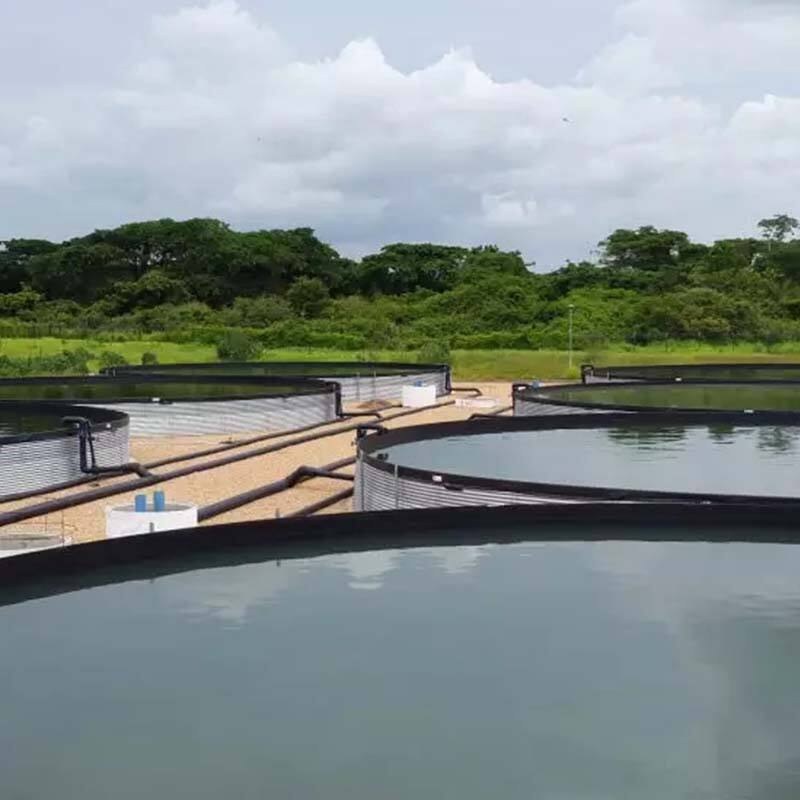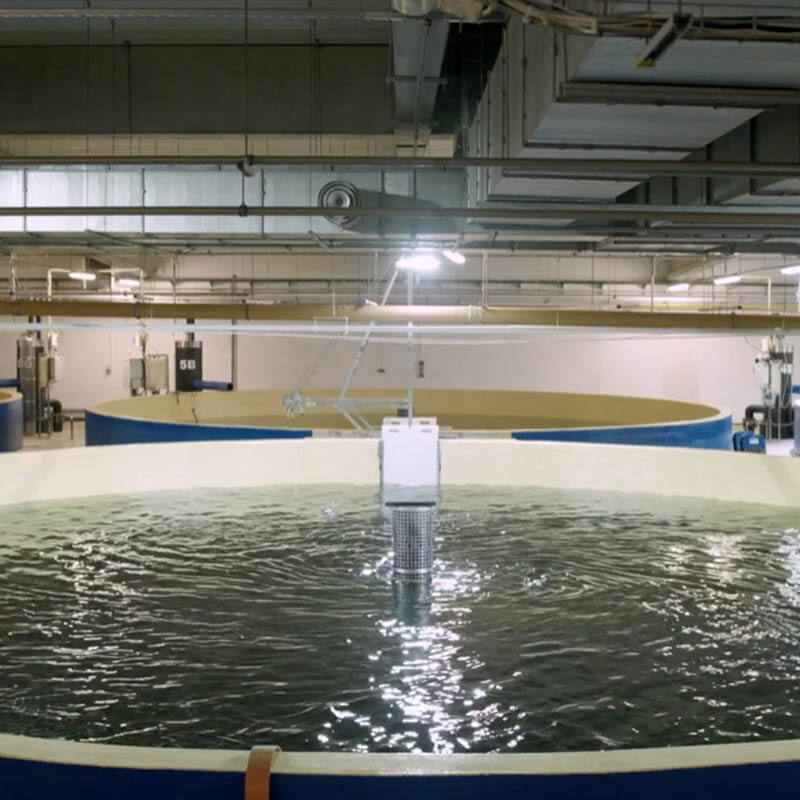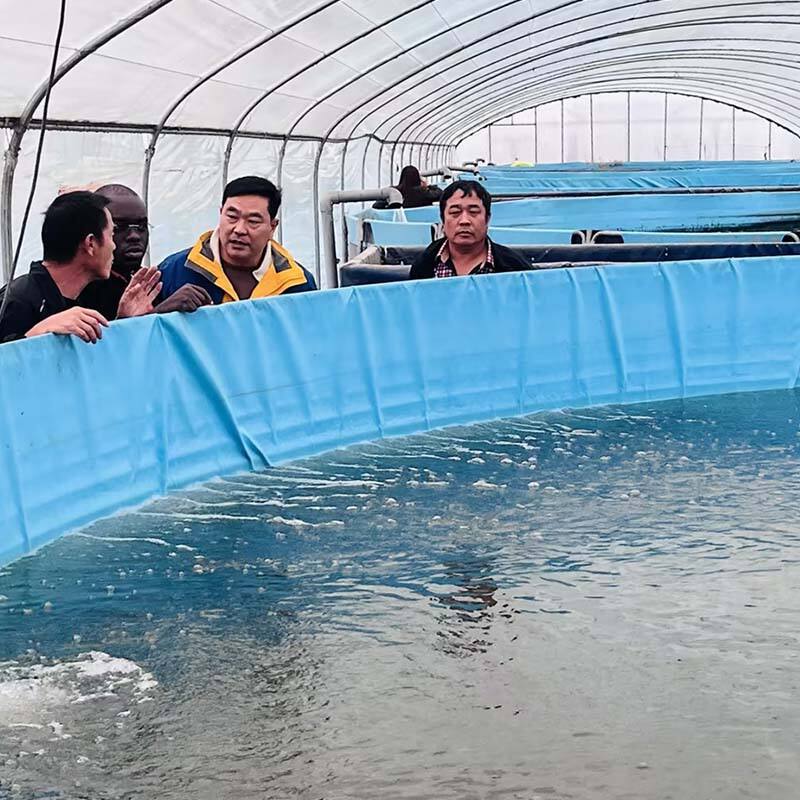 ×
×
Ti piace il pesce: Sarai felice di sapere che puoi allevare più pesci utilizzando sistemi noti come acquacoltura intensiva. Essi contribuiscono a un'utilizzo più ampio delle risorse e con questi sistemi intelligenti, nessuno ne risente tranne i pesci stessi. In questo articolo, impareremo come l'uso dell'acquacoltura intensiva contribuisce a migliorare l'allevamento del pesce in tutto il mondo.
L'aquacoltura ad alta densità serve sempre a produrre più pesci, aiutando tutti i contadini a guadagnare di più. Piuttosto che catturare pesci dal mare o reintrodurre tecnologie obsolete, questi nuovi sistemi mimano le condizioni ideali per i pesci. I contadini tengono i loro pesci sani e li aiutano a crescere più velocemente controllando fattori chiave come temperatura, qualità dell'acqua e fornitura di cibo. Ciò porta a un aumento del raccolto e quindi, profitti per i contadini che possono anche vendere più pesci. Doppio vantaggio per i pesci e i pescatori.
Una parte dei vantaggi dei sistemi intensivi di acuacoltura è che sono anche amichevoli con l'ambiente. Questo elimina la necessità di utilizzare pesci selvatici come sostituti per questi ruoli da predatori, aiutando queste pescherie a riprendersi. Quando vengono confrontati con le normali fattorie ittiche, questi sistemi consumano meno spazio e acqua - quindi producono molto meno spreco rispetto al benessere. È per questo che i pesci prodotti in questi sistemi non sono buoni solo per il consumo, ma anche amichevoli con l'ambiente!
Con l'aumento della popolazione mondiale, cresce anche la nostra ricerca di prodotti ittici. Questo implica che sempre più persone desiderino gustare piatti di pesce deliziosi. Grazie a una maggiore densità di allevamento, i sistemi intensivi di acquacoltura ci permettono di produrre più pesci in modo più rapido. E tutti possono mangiare il loro pesce preferito senza minacciare le popolazioni selvatiche o l'ambiente. L'acquacoltura intensiva garantirà che, anche se l'oceano dovesse morire, ci sarà un'enorme quantità di prelibati prodotti ittici ad aspettarci fino a quando non ne moriamo, forse finché non si esauriscono in qualche punto nel futuro, ma chi lo sa perché probabilmente dovremmo essere tutti morti entro quel momento, presumibilmente.

Migliore per il pianeta: questi metodi aiutano a preservare le popolazioni di pesci selvatici e i loro ecosistemi naturali (es.) controllando le condizioni ottimali in cui determinate specie o stock possono essere coltivati.

Tecnologia intelligente: Un esempio interessante è quello in cui i contadini si affidano a sistemi intelligenti per prendersi cura dei pesci, assicurandosi che crescano in condizioni ottimali. Questo include il controllo della qualità dell'acqua e l'assicurazione che ricevano la giusta quantità di cibo.

L'allevamento del pesce ha soddisfatto la domanda: Ogni giorno nascono sempre più persone e tutti abbiamo bisogno di pesce per vivere. Lavoriamo per raccogliere quel pesce il più rapidamente possibile utilizzando sistemi intensivi di acquacoltura, che aiutano a garantire che ci sarà abbastanza pesce per tutti.
ISO9001, ISO22000, COA, CE, ecc. sono le certificazioni ottenute. Abbiamo esportato con successo i nostri prodotti in 47 paesi e abbiamo realizzato 22 progetti su larga scala con un volume superiore a 3000 metri cubi. Il nostro sistema di acquacoltura viene utilizzato per allevare gamberi e pesci in 112 paesi.
Siamo presenti nell'industria dell'acquacoltura da oltre 15 anni e siamo tra le prime 3 imprese in Cina. Abbiamo sviluppato alleanze strategiche con varie università cinesi prestigiose e anche un team di progettazione altamente efficiente per l'acquacoltura, che vi fornirà prodotti e servizi di alta qualità.
Siamo specializzati nella produzione di tubi in PVC galvanizzato per il sostegno delle vasche per pesci, piastre in PVC galvanizzato per vasche per pesci e articoli per l'acquacoltura, come sacchi in PVC non adatti per l'acqua potabile, sacchi per l'acqua potabile in TPU ed EVA, sacchi per olio in TPU, contenitori PE e sacchi liquidi usa e getta. Offriamo una vasta scelta di attrezzature per il sistema di acquacoltura.
Forniamo un programma dettagliato di acuacoltura, che comprende vari aspetti, come la progettazione dello schema, la configurazione dell'attrezzatura, la pianificazione del budget, l'installazione dell'attrezzatura e la guida alla tecnologia di acuacoltura. Questo può aiutarti a completare il tuo progetto di acuacoltura. Le aziende che non riescono a farlo non possono competere.